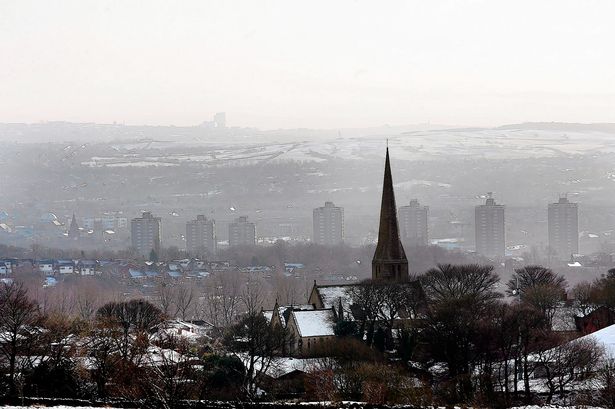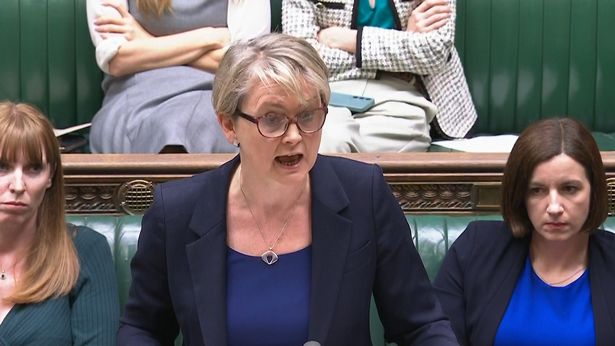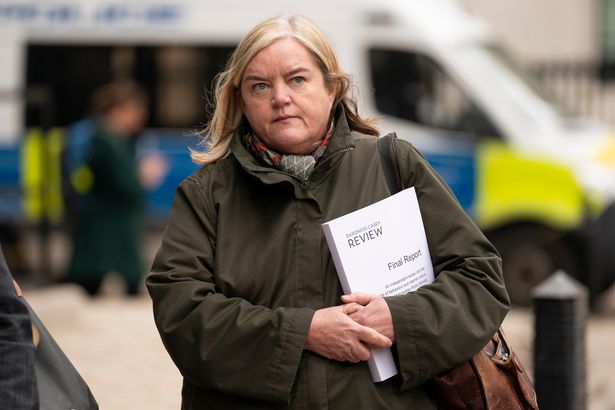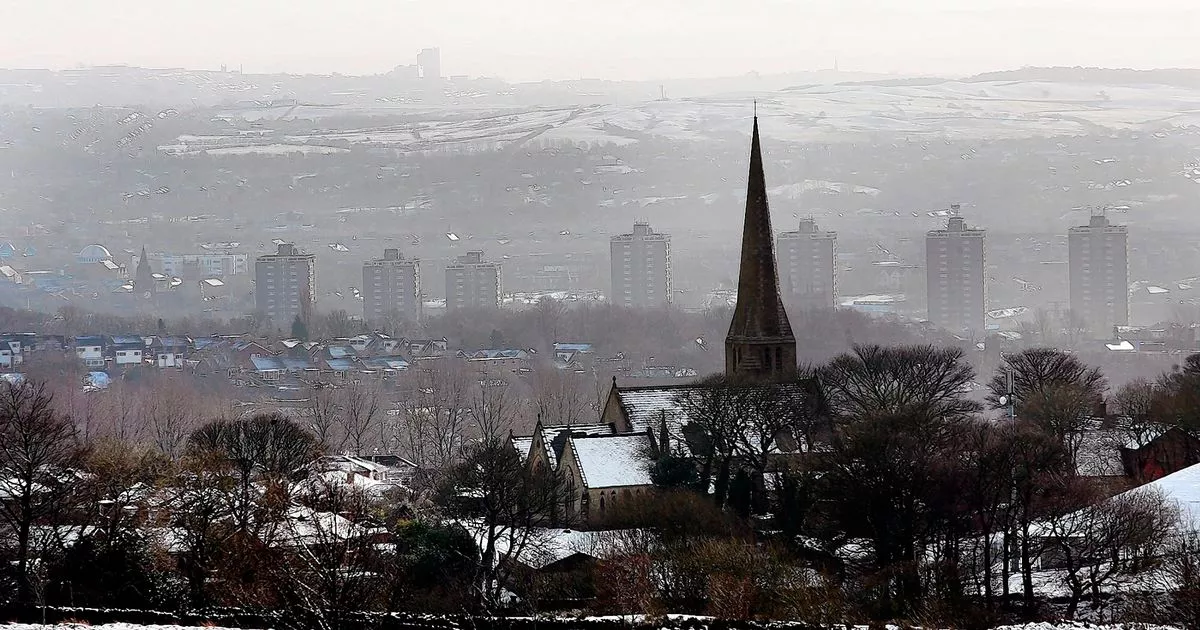Defensive attitudes by officials has ‘added to the misery’, Baroness Casey has said Rochdale(Image: GMWN)
Rochdale(Image: GMWN)
Greater Manchester Police has investigated 35 alleged grooming gangs in the last three years, with more than half of the suspects Asian males while their alleged victims were mostly white females, a new report has revealed.
A review of sex grooming gangs by Baroness Casey published today criticised the lack of data around the ethnicity of suspects – the race of only 37 per cent of suspects is recorded nationally. However, while her report repeated many of the criticisms levelled at Greater Manchester Police and rochdale-council>Rochdale Council for failing to believe or act on reports by vulnerable girls, the force was one one of just three which provided complete data on the ethnicity of suspects over the last three years.
GMP confirmed it investigated 35 ‘group-based child sexual exploitation operations’ and identified 243 suspects in the three years up to May this year. The biggest group (131) were Asian males well ahead of the number of white male suspects (81) while most of the alleged 317 victims were white females (250), says the report.
The force also revealed it had 781 ‘open’ sex crime cases as of May, featuring 594 alleged victims and 908 suspects. When all sex crimes were considered, not just grooming gangs, the ethnicity of the suspects was ‘much closer to that of the local population’ at 16 per cent, says the report. It revealed 44 per cent of the suspects in all open sex crime cases were white.
The figures from GMP, South Yorkshire Police and West Yorkshire Police had revealed ‘disproportionality’ in the number of Asian men involved in sex grooming gangs in these areas, said Baroness Casey.
Baroness Casey’s ‘audit’ – ahead of a public inquiry into the scandal – outlines the many reviews concerning Greater Manchester, which resulted in apologies after the first Rochdale grooming gang trial ended in convictions in 2012 (Operation Span).
The report says: “There was at best a reluctance by the statutory authorities, in this case GMP and Rochdale council, to openly review the events of the previous years, and to work cooperatively to bring past issues to light. Instead, there was a suggestion that everything was now much better: in short ‘it was time to move on.’”
The audit says GMP, following the 2012 convictions of Rochdale sex groomers, would not share data with a review commissioned at the time, citing the potential impact on ongoing cases.
 Home Secretary Yvette Cooper makes a statement in the House of Commons(Image: PA)
Home Secretary Yvette Cooper makes a statement in the House of Commons(Image: PA)
Baroness Casey said: “Even though GMP’s legal advice was that it was safe and appropriate to disclose information to the review team, this advice was not shared with the review team nor was the information requested disclosed. It was not until Stephen Watson took up his position as Chief Constable that this legal advice was made available to the review team.”
Baroness Casey outlined the findings made against the authorities in Greater Manchester in the wake of Op Span after those same authorities had suggested there would be ‘nothing further to learn’.
Among them was that GMP and Rochdale Council ‘failed to prioritise the protection of children who were being sexually exploited by a significant number of men within the Rochdale area’. Police operations were ‘inefficiently resourced’ and children were ‘left at risk’ while many abusers have still not been caught, the Op Span review also found. The information gathered ‘should have sparked a major investigation but it did not’, the Op Span review found.
Baroness Casey said: “Meanwhile, many years on, victims from Rochdale and Greater Manchester are still co-operating with the police and CPS to be witnesses in trials that have not yet been scheduled.
“These two areas are not the only areas who have shown a ‘reluctance’ to review past events. During the course of this audit, we saw a similar reluctance in areas to conduct reviews or establish an inquiry. They pointed to the fact that they were confident that practice had improved or that issues had been ‘covered elsewhere’… Until we are able to acknowledge the problem fully, apologise and make good on the wrongs, it will be hard to ‘move on’.”
Baroness Casey concluded in her audit: “Our collective failure to address questions about the ethnicity of grooming gangs has led to this issue dominating the political and institutional focus, with energy devoted to proving the point on one hand, or avoiding or playing it down on the other, and still with no definitive answer at the national level.
“When we looked at data held in three local areas, there is evidence that men of Asian ethnicity are over-represented as perpetrators in group-based child sexual exploitation in those areas. Taken together with the significant number of prosecutions of men from Asian ethnic backgrounds evident in local reviews and prosecutions across the country, this should have, and indeed still does, warrant further examination.
“Justice might also have been better served in the past if children’s services, the police and other criminal justice agencies had applied fewer stereotypes and judgements to the victims of child sexual exploitation, to have given them the protection and safeguarding response they deserved instead of treating or seeing them as complicit adults.
 Baroness Louise Casey(Image: AP)
Baroness Louise Casey(Image: AP)
“The defensive behaviours of organisations responsible when challenged on their handling of child sexual exploitation has added to the misery and suffering of victims and further hampered efforts to tackle child sexual exploitation more effectively.
“Resistance and reluctance to review and acknowledge past mistakes, apologise and take action is unnecessary and leaves wounds unhealed.
“The result of all of this has been a blind-spot in the way institutions have addressed child sexual exploitation, with too many of the most important people at the heart of this crime – the victims – many still waiting for justice. This pattern will be repeated in the present day unless change happens.”
